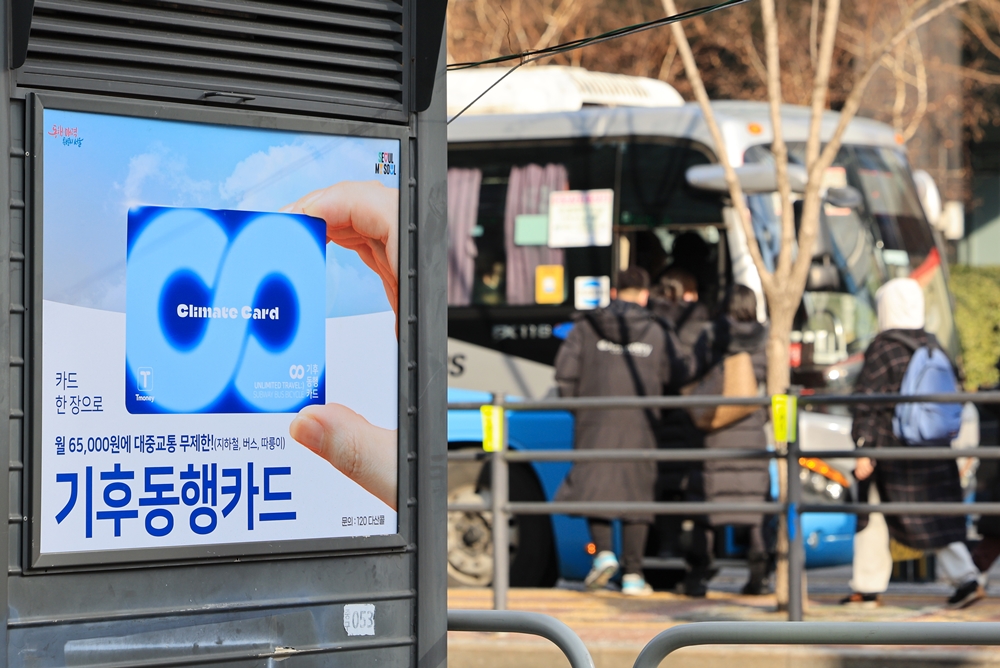
A poster at a bus stop in Seoul on Jan. 22 announces the launch of the Climate Card, an unlimited mass transit pass released by the Seoul Metropolitan Government.
By Charles Audouin
More methods to reduce the burden of public transportation fees for the public will be launched this year.
In a joint media briefing on Jan. 22 at the Korea Press Center in the capital’s Jung-gu District, the Ministry of Land, Infrastructure and Transport, the city governments of Seoul and Incheon, and the administration of Gyeonggi-do Province announced four projects to reduce such expenses.
First, the Climate Card to start service on Jan. 27 allows commuters in Seoul unlimited use of mass transit in the city for either KRW 62,000 or 65,000 per month. This is targeted for residents of the capital since the card’s use is limited to public transportation in Seoul.
The city government said the card since its pre-sale that started on Jan. 23 posted sales of around 100,000 units in its first days.
In May, the ministry will launch K-pass for regular users of inter-city buses and subways more than 15 times a month. A fixed-rate refund on fares used will be offered from next month — 20% for ordinary users, 30% for youth and 53% for low-income earners — and the benefit is limited to 60 trips per month.
Unlike the Climate Card, K-pass is better for those who commute from Seoul to Gyeonggi-do or Incheon by riding wide-area buses, the Shinbundang Line on the Seoul subway and higher-speed rail Great Train eXpress, aka GTX.
Based on the K-pass system, The Gyeonggi Pass and Incheon I Pass offer bigger discounts to residents of the province or Incheon. A user of either pass can get savings or refunds on public transportation fares even if exceeding 60 trips a month, and the younger generation ages 19-39 and senior citizens age 65 or over living in Incheon will get expanded benefits.
Thus people are advised to carefully analyze their travel patterns and use one of these cards to save on public transportation fares.
caudouin@korea.kr























